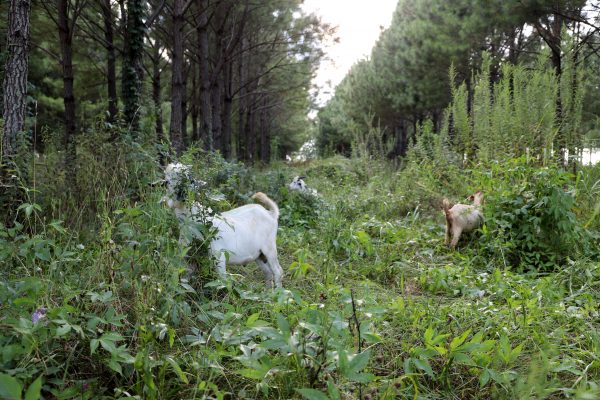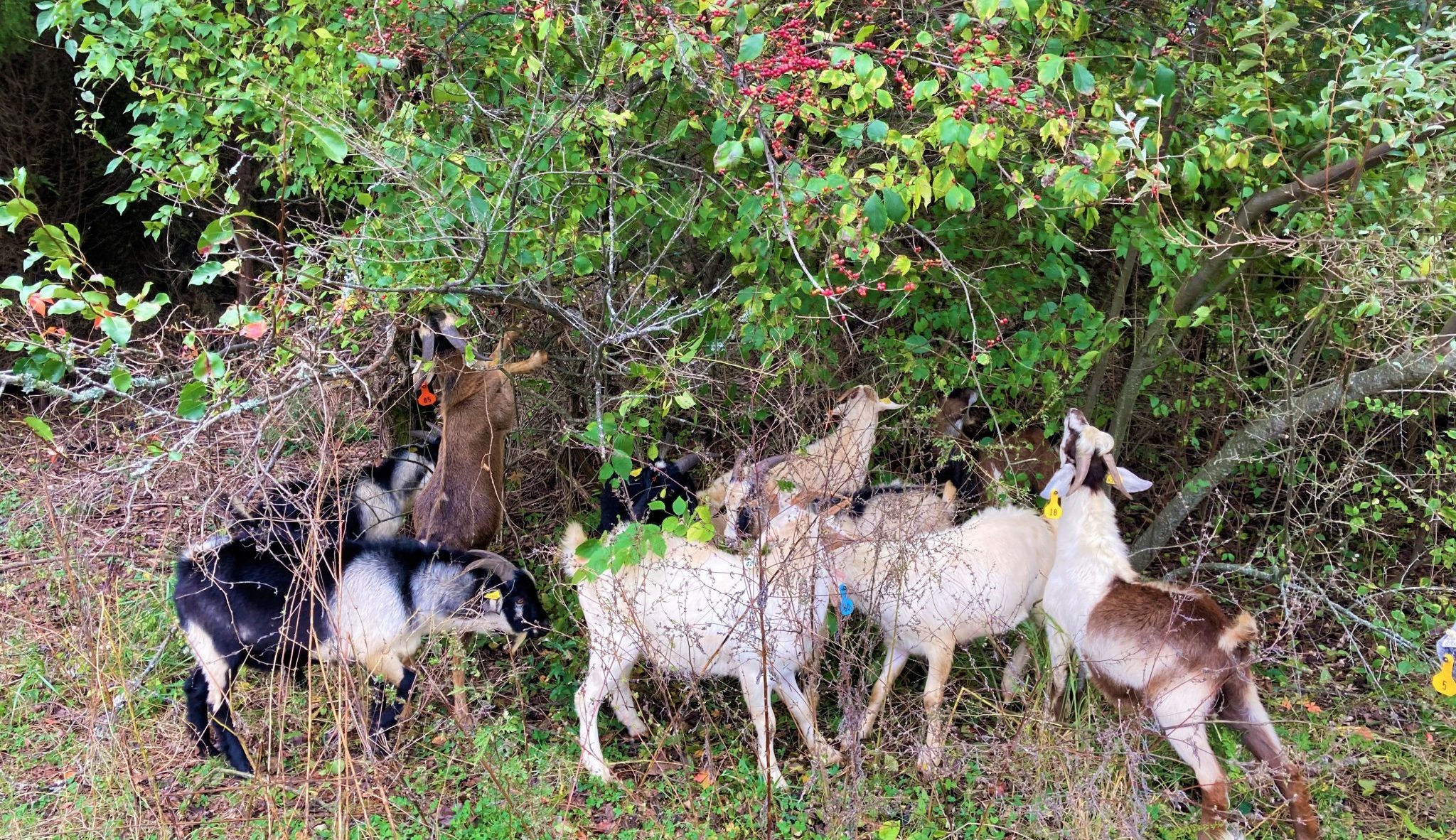Animals

The anatomy and physiology of goats allows them to browse on a wide range of vegetation. Goats eat mostly woody and weedy plants and may be exposed to poisonous plants. These toxic plants can be harmful to all livestock species. Eating toxic plants can result in decreased productivity, animal deaths, and significant economic losses for producers. Knowledge of poisonous plants can help producers to identify and safely remove them from pastures before they cause harm to livestock.
Susceptibility to Poisonous Plants
 In early spring, fall, or dry periods when forages are in short supply, animals may choose to consume poisonous plants that they would normally avoid when other vegetation is plentiful. The following conditions and situations can lead to plant poisoning:
In early spring, fall, or dry periods when forages are in short supply, animals may choose to consume poisonous plants that they would normally avoid when other vegetation is plentiful. The following conditions and situations can lead to plant poisoning:
- Drought makes certain plants accumulate toxins. Slower plant growth because of drought can result in forage shortages.
- Overgrazing in pastures or woodlands can also cause animals to consume forage species they would normally avoid when vegetation is more abundant.
- Owners may lack the knowledge of toxic plants in pasture or hay and may not survey land for poisonous plants before releasing animals to graze.
- Turning weaned animals onto lush pasture for the first time in the spring.
- Introducing extremely hungry animals to a new pasture that contains poisonous plants.
- Turning animals on to a pasture following a herbicide application. Some toxic weed species, such as perilla mint and wild cherry leaves, increase in palatability as they wilt.
Many plants species have a wide range of poisonous effects. North Carolina State University has published a resource titled Poisonous Plants of the Southern United States that can be reviewed and downloaded.
Common Symptoms of Plant Poisoning
Symptoms for plant poisoning can vary from mild to severe.
Mild
- reduction in animal movement and normal activities that may last for a few days
- reduced feed intake
Severe
- lack of coordination
- convulsion
- blindness
- vomiting
- erratic behavior
- quick death
The severity of plant poisoning depends on the
- quantity of poisons consumed and the other feed animals have eaten.
- plant species eaten.
- stage of production of the animal. Lactating and late gestating animals are more susceptible in comparison to non-lactating animals.
Treatment
If a producer suspects that their goats ate something poisonous, they should perform the following steps:
- remove the animals from the pasture where toxic plants were found
- move the animals to a warm, dry, and shaded area
- let the animals drink clean water
- call a veterinarian immediately
Management Strategies for Poisonous Plants
Avoid overgrazing. Producers will not only ensure that animals have a selective choice of vegetation to eat, but it will help to reduce parasite exposure. This also prevents animals from eating plants close to the ground.
Develop a grazing plan that allows for rotational grazing. If animals are new to an area, introduce them to the pasture slowly or scout any possible poisonous plant prior to introducing them to the pasture.
Conduct soil testing and follow proper fertilization and liming recommendations based on soil test results.
Avoid using pesticides on grazing pasture.
Utilize mechanical or biological weed control methods.
- Mechanical control methods include the following:
- mowing pastures to remove poisonous plants
- burning pastureland to control the growth of toxic plants (be sure to take the proper safety precautions)
- removing poisonous plants by hand (again, take proper safety precautions)
- Biological control methods include the following:
- using different living organisms, such as insects, nematodes, bacteria, or fungi, to suppress the development of undesired species
- using biological processes, such as plant competition, to suppress the development of undesired species
More Information
If not well managed, poisonous plants can cause enormous damage to animal health as well as economic losses to producers. Knowledge of poisonous plants and the ability to identify and remove them in pasture may help to prevent their negative effects on livestock production. When producers suspect animal poisoning, please call a veterinarian immediately. More information on goat and sheep production management can be found on the Alabama Extension website at www.aces.edu.

